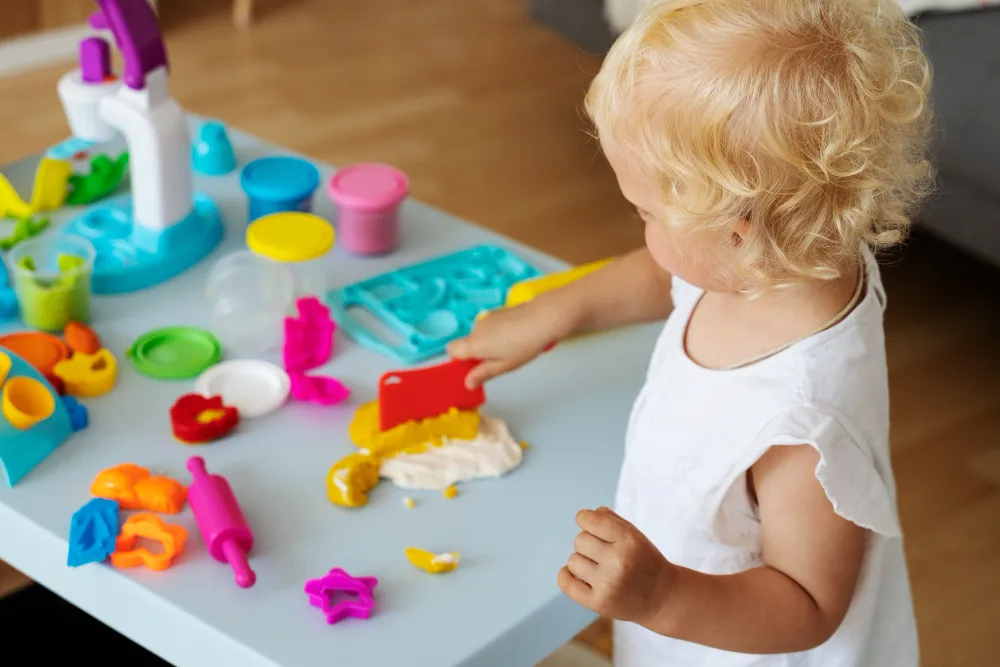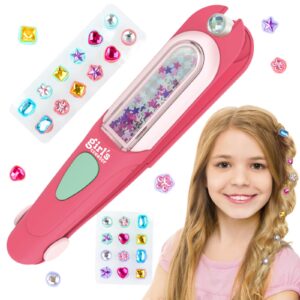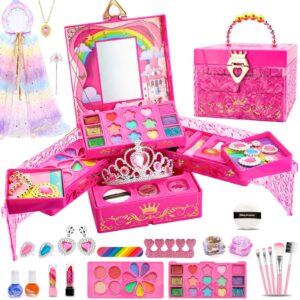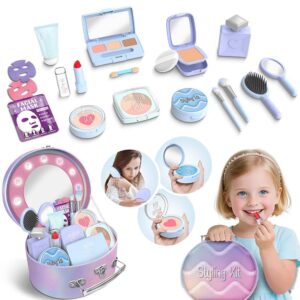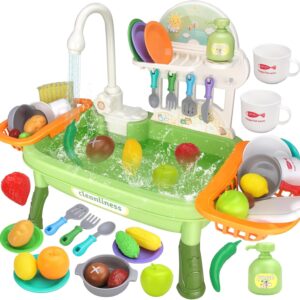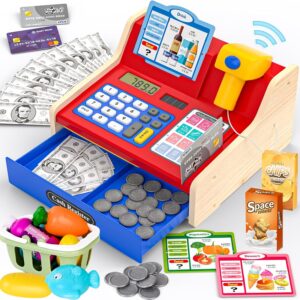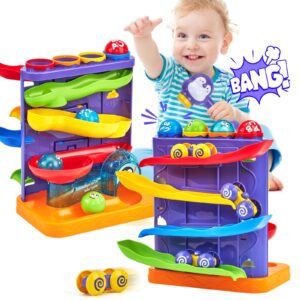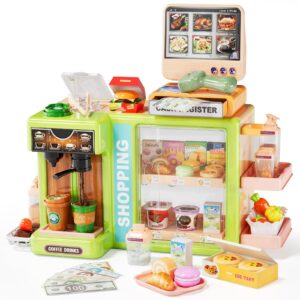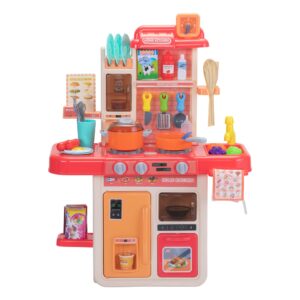Introduction
Children are naturally curious and love to mimic the behaviors of adults. One of the most captivating activities for them is imitating cooking, an integral part of daily life. This fascination often leads to hours of pretend play, where kids transform into little chefs, preparing imaginary feasts. Role-playing is not just a fun pastime; it plays a crucial role in the growth and development of children. This article will explore how toy kitchens, through the medium of role-playing, can significantly enhance children’s creativity and imagination.
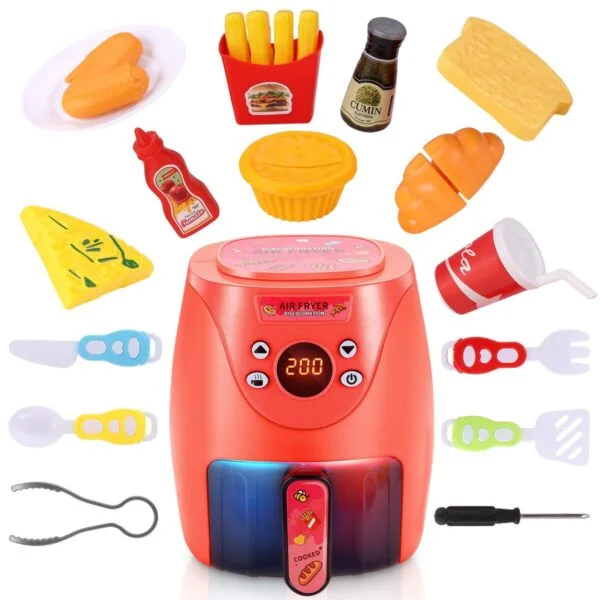
The Magic of Role-Playing
Simulating Real-Life Scenarios
When children engage with toy kitchens, they step into a miniature world where they can simulate real-life cooking scenarios. This imaginative play allows them to experience the process of cooking, from chopping and mixing to serving dishes. By mimicking these activities, children gain a better understanding of everyday tasks, fostering a sense of realism in their play.
Enhancing Language Skills
Playing roles such as chefs, customers, or waitstaff in their pretend kitchens, children naturally improve their language skills. They practice new vocabulary and sentence structures, learning to express themselves more clearly. These interactions also boost their social skills, as they negotiate roles and collaborate with their playmates.
Observing Behavioral Changes
Parents and caregivers can gain valuable insights into their children’s interests and personalities through their play behaviors. Observing how children interact with their toy kitchens reveals their preferences, habits, and emotional states. This understanding can help adults guide and support their children’s development more effectively.
Fostering Creativity
Imagining Ingredients and Recipes
Toy kitchens encourage children to be inventive with their play. They might combine different “ingredients” to create unique dishes, spurring their creativity and problem-solving skills. This kind of play stimulates their ability to think outside the box and come up with new ideas.
Designing and Arranging
Children also exercise their creativity when setting up and decorating their toy kitchens. They choose colors, arrange utensils, and decide on the layout of their play spaces. This activity enhances their spatial awareness and aesthetic sense.
Innovating in Play
The flexible nature of toy kitchens means that children can invent new games and rules. This innovation is a clear sign of their developing creativity. By coming up with fresh ways to play, children learn to think creatively and adapt to new situations.
Real-Life Applications
From Play to Practical Skills
Skills learned in the toy kitchen can translate to real-life tasks. Children gain a basic understanding of cooking processes, cleanliness, and organization. These skills are beneficial as they grow older and start to help out with actual kitchen duties.
Building Responsibility and Self-Discipline
Toy kitchens teach children about responsibility and self-discipline. They learn the importance of cleaning up after cooking and the value of organization. These lessons are fundamental in fostering a sense of responsibility and self-control.
Enhancing Family Interaction
Toy kitchens provide a platform for family bonding. Parents can join in the play, strengthening their relationship with their children. This interaction not only enhances family ties but also provides an opportunity for parents to teach and guide their children in a fun and engaging way.
Case Studies and Evidence
Real-Life Examples
Many parents and educators have observed the positive impacts of toy kitchens on children’s development. 例えば, Jane, a mother of two, noticed significant improvements in her children’s creativity and social skills after introducing a toy kitchen into their playroom. Educators also report that children who engage in role-play with toy kitchens often display better language skills and greater imaginative capacities.
Research Data
Studies have shown that role-playing toys like toy kitchens can boost cognitive and social development. Research indicates that children who engage in imaginative play are more likely to develop advanced problem-solving skills and exhibit higher levels of creativity.
Conclusion and Call to Action
Summarizing Key Points
In summary, toy kitchens are more than just playthings; they are powerful tools that stimulate creativity and imagination in children. ロールプレイングを通じて, kids can simulate real-life scenarios, enhance their language skills, and develop their creativity. These activities also teach valuable life skills, such as responsibility and self-discipline, and provide opportunities for meaningful family interaction.
Encouraging Parents
We encourage parents to consider incorporating toy kitchens into their children’s playtime. Not only do they provide hours of fun, but they also contribute significantly to a child’s developmental journey. By actively participating in their children’s pretend play, parents can support and nurture their growth.
に設立されました 2005, Shantou Ever Prosperous Trading Co., Ltd. specializes in international trading, focusing on toys and daily commodities. Partner with us for quality and innovation in your business and home.
-
 DIY Jewel Hair Kit Decoration Pretend Toy Kids Makeup Kit Set for Girls Hair Gem Stamper Kit$2.90
DIY Jewel Hair Kit Decoration Pretend Toy Kids Makeup Kit Set for Girls Hair Gem Stamper Kit$2.90 -
 Wholesale Princess Makeup Toys DIY Bead Bracelet Making Kit Cosmetics Toy Plastic Full Set Makeup Toys Kids$9.99
Wholesale Princess Makeup Toys DIY Bead Bracelet Making Kit Cosmetics Toy Plastic Full Set Makeup Toys Kids$9.99 -
 Simulation Dress up Pretend Play Stuling Kit Beauty Fashion Cosmetics Girls Toy Makeup Toys Kid Set$5.99
Simulation Dress up Pretend Play Stuling Kit Beauty Fashion Cosmetics Girls Toy Makeup Toys Kid Set$5.99 -
 ごっこ遊びキッチンおもちゃセット アップグレードされた蛇口と食器付き プレイセット 子供用ごっこ遊びキッチンシンクおもちゃ$5.90
ごっこ遊びキッチンおもちゃセット アップグレードされた蛇口と食器付き プレイセット 子供用ごっこ遊びキッチンシンクおもちゃ$5.90 -
 ごっこ遊び電卓レジおもちゃスキャナー充電式木製レジ子供用$7.99
ごっこ遊び電卓レジおもちゃスキャナー充電式木製レジ子供用$7.99 -
 ローリングボールトラックピースおもちゃ赤ちゃん 2 で 1 ペンギンハンマーパウンディングモンテッソーリおもちゃプラスチックジェットコースターボールランプおもちゃ$7.99
ローリングボールトラックピースおもちゃ赤ちゃん 2 で 1 ペンギンハンマーパウンディングモンテッソーリおもちゃプラスチックジェットコースターボールランプおもちゃ$7.99 -
 Pretend Play Supermarket Shop Cash Register Toy Ice Cream Shop with Scanner Money Calculator Desserts$7.99
Pretend Play Supermarket Shop Cash Register Toy Ice Cream Shop with Scanner Money Calculator Desserts$7.99 -
 5-in-1 食料品スーパーマーケットのおもちゃ タッチスクリーンレジ付き ミニコーヒーメーカー 食べ物遊び お金遊び ごっこ遊びおもちゃ$9.99
5-in-1 食料品スーパーマーケットのおもちゃ タッチスクリーンレジ付き ミニコーヒーメーカー 食べ物遊び お金遊び ごっこ遊びおもちゃ$9.99 -
 75CM 46 個子供用シミュレートミニキッチンごっこ遊びセットおもちゃ調理食品おもちゃ$10.99
75CM 46 個子供用シミュレートミニキッチンごっこ遊びセットおもちゃ調理食品おもちゃ$10.99





